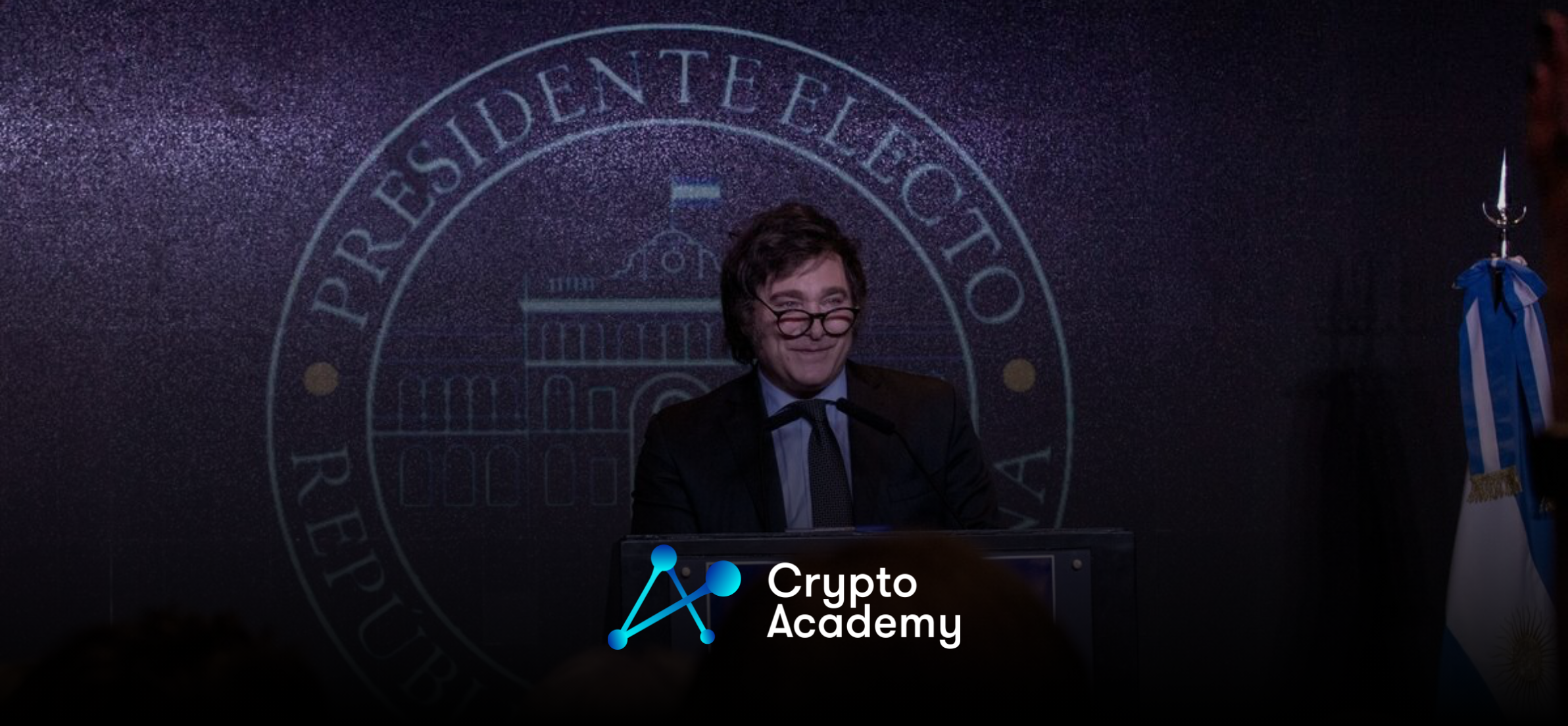Argentina has embarked on a new political journey with the election of Javier Milei, a pro-Bitcoin and far-right populist, as its president. On November 19, Milei triumphed in the presidential run-off, securing 55% of the votes, which placed him nearly 3 million votes ahead of his nearest rival. This victory marks a substantial shift in Argentina’s political landscape, heavily influenced by Milei’s outspoken critique of central banks, which he labels as a “scam” and a tool for politicians to impose inflationary taxes on the public.
In the throes of an alarming inflation crisis, where the Argentine peso has experienced a 140% annual inflation rate over the past year, Milei’s perspectives have resonated deeply. Consequently, the election results mirror a significant change in the political climate of Argentina, reflecting the public’s growing discontent with traditional economic policies.
Milei’s Vision for Bitcoin and Argentina’s Economy
Interestingly, Milei’s victory not only signifies a political upheaval but also heralds a potential turning point for Bitcoin in Argentina. Although Milei has not proposed making Bitcoin legal tender, his inclination towards Bitcoin as a tool for economic revival is clear. He advocates for returning monetary control to the private sector, viewing Bitcoin as a catalyst in this process.
Javier Milei’s background, with a tenure as Chief Economist at Corporación América International and a listing on the World Economic Forum, contrasts sharply with his current pro-Bitcoin stance. This dichotomy between his professional history in traditional finance and his advocacy for Bitcoin adds a layer of complexity to his economic policies. It raises intriguing questions about the alignment of his libertarian views with his past association with conventional economic systems.
The stark contrast between Milei and his opponent, Sergio Massa, was evident throughout the campaign. Massa, the current Minister of Economy, proposed launching a central bank digital currency as a solution to Argentina’s inflation crisis. This highlighted the divergent economic philosophies within the country’s political spectrum.
Milei’s economic blueprint includes radical reforms, such as closing the central bank, replacing the Argentine peso with the US dollar, and embracing decentralized finance. Termed ‘economic shock therapy’, these plans signal a drastic deviation from Argentina’s current financial strategies.
However, while many applaud Milei’s pro-Bitcoin stance and his criticism of central banking, his views on other social issues have stirred controversy. Joe Nakamoto and Ben De Waal have expressed concerns over Milei’s position on social freedoms, particularly his stance on abortion and other rights issues.
In response, Fernando Nikolić provides a nuanced perspective on Milei’s political approach, emphasizing his commitment to democracy and suggesting that some of his more controversial statements may be more about political strategy than core beliefs.
The Future of Bitcoin in Argentina’s Economy
As Milei takes office, the implications for Bitcoin and Argentina’s economy are the subjects of much speculation. His presidency could pave the way for Argentina to adopt Bitcoin as a legal tender and hold it as a reserve asset, following in El Salvador’s footsteps. The integration of Bitcoin into Argentina’s economy could create a more decentralized and inflation-resistant financial system, potentially impacting Bitcoin’s value positively.
Also Read: El Salvador To Introduce Bitcoin Education In Schools Next Year
Milei’s election heralds a potentially transformative era for Argentina’s economic policies and the role of Bitcoin in its financial system. The balance between his bold economic strategies and the concerns over his social policies will be a pivotal factor in shaping Argentina’s future.
Is Argentina Following on the Footsteps of El Salvador?
As we ponder the future under President Milei, a creative question arises: How will the interplay between Milei’s radical economic reforms and his controversial social policies shape Argentina’s path? Is Argentina following on the footsteps of El Salvador? In an era where digital currencies are reshaping economies, how might Argentina’s potential embrace of Bitcoin influence not just its own economy but also the global perception of cryptocurrencies? This intersection of politics, economics, and technology presents a fascinating scenario for observers and participants alike in the evolving world of global finance.

